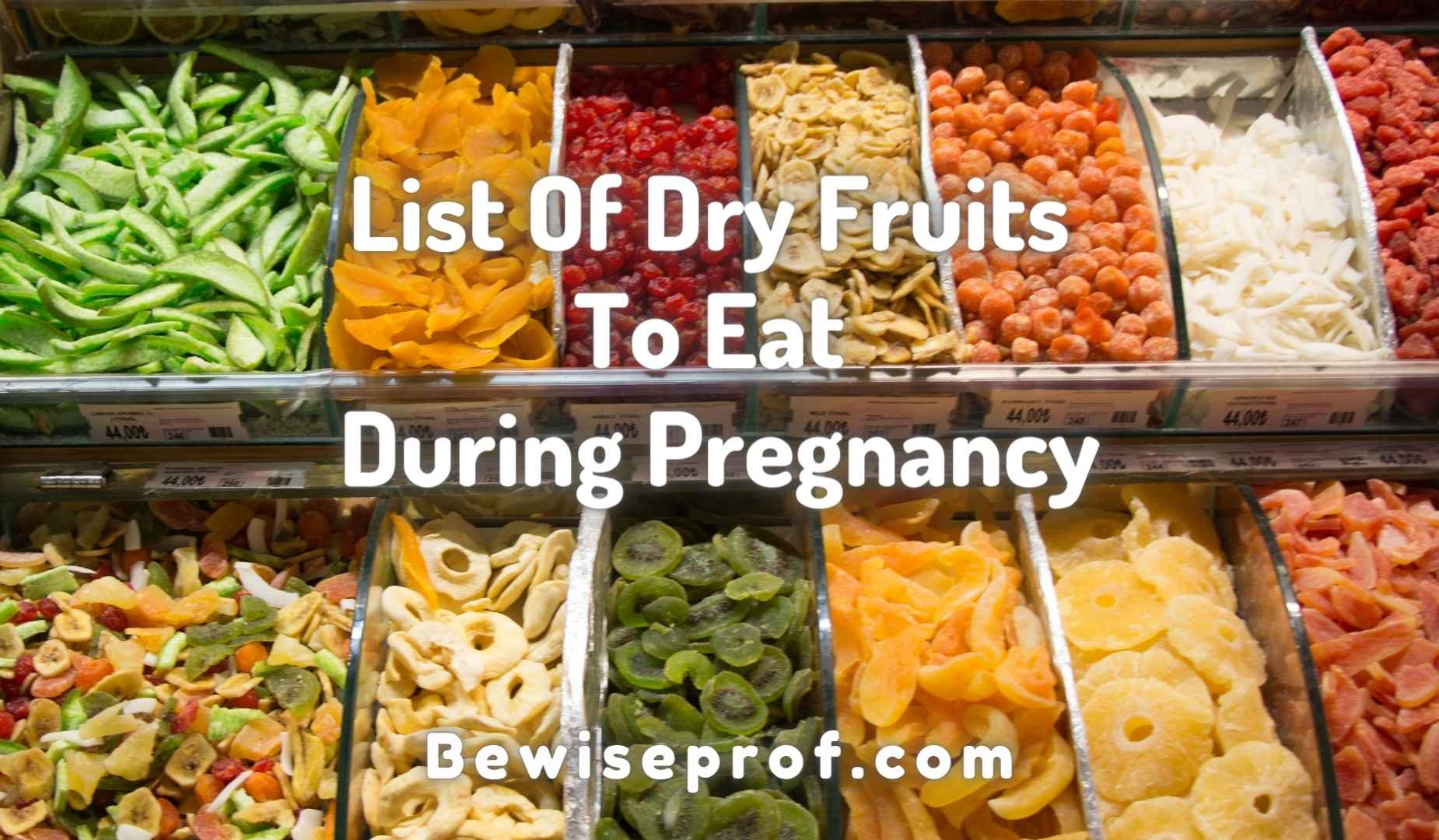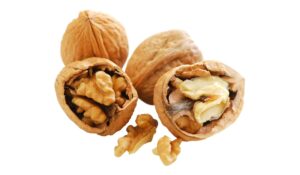Dry fruits are rich in vitamins, minerals, and proteins. They are also delicious. Dry fruits can be substituted for fried and salty snacks by being very healthy. These fruits are particularly beneficial to pregnant women.
This article will discuss the best times to eat dry fruit during pregnancy and the side effects and benefits of dry fruits.
Is it safe to eat dry fruits during pregnancy?
Medical experts say that dried fruits have the same nutrients as fresh fruits. This means that pregnant women can get their vitamins and minerals easily by eating smaller amounts of dried fruits than fresh fruits. You should aim to strike a healthy balance and not overindulge. Yes, dry fruits are safe during pregnancy.
One caution: Dry fruits can have high levels of sugar and may not contain the same amount of water as fresh fruit. This means that they won’t aid digestion. Pregnant women should not eat dried fruits in excess along with fresh fruit. It is important not to allow anything to affect your baby’s health.
Pregnancy: Dry fruits
1) Walnut Benefits
Walnuts (aka Akhrot) are an essential addition to your diet. These simple nuts are a great source of Omega-3 Fatty Acids. This nutrient helps reduce oxidative stress in your brain. It is also known to boost brain development and protect brain health in unborn babies.
How to Consume
Mothers who are expecting can eat three to four kernels of nuts per day. Walnuts are delicious raw or lightly roasted. Studies show that nuts can be eaten during the first trimester. This is thought to boost neurodevelopment in children.
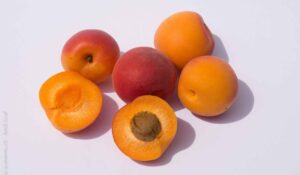
2) Apricot Benefits
Apricots are a good choice for pregnant women to increase their iron intake. Khubani (a handful of apricots) contains 10% of your daily iron requirements. Anemia is a risk for pregnant mothers. Apricots are an important part of a mother’s diet.
Research indicates that apricots may also be helpful in constipation relief and regulating the mother’s digestive system.
How to Consume
Mothers can have a few chopped-up apricots as a breakfast snack or add them to their morning meals.
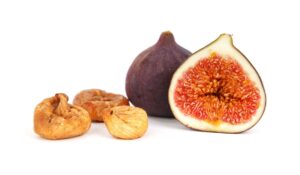
3) Fig Benefits
A mother can use dried figs or anjeer during pregnancy to help with her digestive problems. Figs are rich in calcium, iron, and potassium. They also contain copper, magnesium, potassium, manganese, and copper. Due to their high fiber content, eating figs while pregnant can help reduce constipation.
How to Consume
Women who are pregnant can have up to three figs as a snack. Fresh figs can be added to salads. You can also eat figs by adding 2 cups of milk to a salad and some vanilla extract.
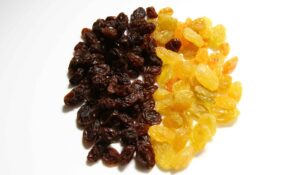
4) Raisin Benefits
Sweets are a common craving for pregnant women. Pregnant women often crave sweets. Raisins can help ease this craving while also providing a great source of iron and fiber. Raisins (also known as kishmish) aid the body to absorb water and create a laxative effect.
How to Consume
Mothers of babies can add four to five raisins each day to their salad. Raisins are delicious raw or soaked in water to make them suitable for use in recipes.
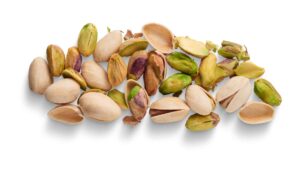
5) Pistachio Benefits
Women who are pregnant can eat pista to get a lot of energy. Pista is low in calories and high in nutritional value. You can meet your daily calcium, iron, and folate needs by eating four to five pistachios while pregnant. These nutrients are vital for the development and growth of your baby.
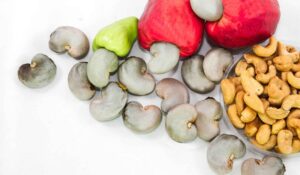
6) Cashew Benefits
Cashew (kaju) is one of the most healthful nuts during pregnancy. Cashew is rich in fiber, calcium, and zinc as well as iron, folic acid, magnesium, and vitamin B6. Cashews can also be a great source of iron, which will increase hemoglobin levels in pregnant women.
How to Consume
Mixing a few cashews and other dried fruits can make it a snack for women. Cashews can be consumed in any trimester of pregnancy.
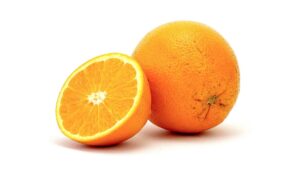
7) Orange Benefits
Oranges are a great source of Vitamin C. It is essential for cell protection.
How to Consume
Dry oranges can be eaten by women by drying them in an oven or dehydrator. These dried orange slices can be used as snacks. These can be eaten with dark chocolate or yogurt.
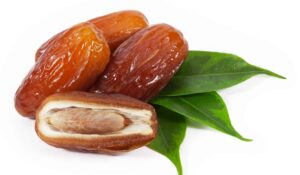
8) Dates Benefits
Yes. Dates are an important part of your pregnancy diet, as they contain various dry fruits. Khajur is a sweet treat that will satisfy the sweet tooth, but it also provides energy for pregnant women to combat fatigue. The high potassium content in dates helps to reduce fatigue and muscle weakness.
How to Consume
Women who are pregnant can have up to three dates per day. You can make a smoothie with it or eat it raw.
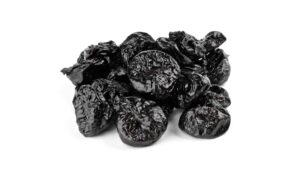
9) Prunes Benefits
Pregnancy prunes are good for digestion and can help combat fatigue.
Women may feel anxious during the first trimester. According to a study, the high potassium content in prunes can help with anxiety and depression.
How to Consume
Pregnant women may eat prunes as an individual snack. You can also add it to salads and puddings. It can also be used in baked goods or blended into smoothies.
The benefits of eating dry fruits during pregnancy
Dry fruits and nuts, like the previous ones, are very rich in minerals such as magnesium calcium, zinc, potassium, and selenium. They also provide a reliable source of antioxidants. They can also keep your stomach full and reduce hunger pangs.
- Great for constipation issues
Pregnancy can be prevented by dry fruits which are high in dietary fiber. Consuming dried fruits can help to solve constipation problems and other issues caused by hormonal changes in pregnancy. Pregnant women should eat a high-fiber diet. Dry fruits are a good choice during pregnancy.
- The Rich source of iron
A healthy pregnancy is dependent on iron. Having dry fruits such as dates and dried figs will help you meet your iron needs. They can also be used as iron supplements.
- Baby’s Bone Health
Vitamin A can be found in dry fruits, which is essential for the development of the fetus’ teeth and bones. Magnesium in dried fruits can aid in the development of a baby’s nerves and bones. Consuming nuts and dry fruits are therefore essential.
- Controls blood pressure
Potassium, which can be found in nuts and dry fruits, can control blood pressure and can enhance muscle control to a large extent.
- Gives energy to the body
The natural sugar found in dried fruits can be easily digested and provide a good source of energy.
- Strengthens Uterus Muscles
Dates and prunes are well-known for strengthening the uterus muscles, which makes delivery easier. It reduces postpartum bleeding.
- Reduces Asthma Risk
It is believed that dry fruits can reduce the risk of developing asthma or wheezing in a child. Vitamin E, which can be found in large amounts in nuts and dry fruits, can help to develop the baby’s lungs and cells. This vitamin can help your baby avoid developing asthma.
Pro Tips for Consuming Dry Fruits
Here are some tips to help you eat dry fruits during pregnancy.
- Raw fruits are best consumed as snacks throughout the day.
- It is also a good idea to avoid dry fruits at night if you’re pregnant.
- Almonds that have been soaked in water are best, as it increases their nutritional value.
- Dry fruits and nuts can be eaten by adding them to a fruit salad. This allows you to eat both fresh and dried fruits at the same time and creates a balanced diet.
Consuming dry fruits during pregnancy can have side effects and risks
These are the side effects of eating dry fruits during pregnancy:
- Weight Gain
A mother who eats too many dried fruits may experience weight gain. Dry fruits are high in sugar and calories.
- Gastrointestinal Problems
Excessive consumption of dry fruits can cause digestive problems.
- Tooth decay
Dry fruits, like the ones we mentioned earlier, are high in sugar and can cause cavities.
- Fatigue
Complex sugars found in dried fruits can be stored in your muscles and cause fatigue and lethargy.
Take Care When Consuming Dry Fruit
These are some precautions to take when eating dry fruits.
- Avoid dry fruits containing preservatives or added sugars.
- Always choose sun-dried fruit that has been dried naturally, rather than processed.
- To prevent mold growth, dry fruits and nuts should be kept in a sealed container.
- Before you eat the fruit, make sure they aren’t rotten or smells bad. Avoid dry, discolored fruits.
Dry Fruit Juice Recipe
- Take a few of your favorite nuts, such as cashews or almonds, pasta, or dried figs, and soak them in warm water for about an hour.
- Drain the water from the almonds and then peel the skin. Blend all ingredients in a blender. To sweeten the drink, you can add chopped dates. Combine these ingredients with 3/4 cup milk.
- For better digestion and flavor, add some cardamom powder. Serve the dry juice right away
These are some of the many benefits of dry fruit juice.
- How to beat insomnia
- Prevents constipation
- Helps decrease nutritional deficiencies
- Healthy weight gain
Women who are pregnant can consume one glass of dry juice per day.
Pregnancy: Dry fruits during the first trimester
It is important to eat dry fruits during pregnancy. This is good for your health. In the past, dry fruits were associated with intelligent and smart babies.
Pregnancy: Dry fruits during the second trimester
During your second trimester, you should eat dry fruits in moderation. This will ensure a smooth and easy pregnancy.
Pregnancy: Third Trimester of Pregnancy
It shouldn’t surprise that dry fruits must be consumed in the third trimester. Walnuts are especially said to be beneficial for pregnant women. Walnuts are said to regulate melatonin and induce sleep. This provides mothers with much-needed rest during this difficult time.
What Ladoo should I eat during pregnancy?
Research indicates that pregnant women can have nachni and ragi ladoos. These ladoos contain iron and are nutritionally dense.
What is the Daily Allowable Dry Fruit Consumption?
Dry fruits are high in calories and sugar, so it is advised that pregnant women not consume more than 100g of dry fruits per day. You must be careful about what you eat during pregnancy. A lot of your baby’s health is dependent on what you eat. This is a time when you should avoid high-calorie foods.
Can We Eat Cashews During Pregnancy?
Yes. You can eat cashew during pregnancy, but only in small quantities because cashew has high-fat content. However, nuts can be a good source of nutrition in any trimester, regardless of whether they are the first, second or third. Nuts are rich in nutrients, whether they’re walnuts or cashews. You can consume 60 grams of nuts in the first trimester and 90 grams in the second. The final phase will see you consume 100-120 grams.
Can We Eat Kaju during Pregnancy?
You can eat Kaju during pregnancy. Kaju and cashew can be eaten in the same way. When eaten in moderation, nuts, including cashews are healthy.
Are Prunes safe to eat during pregnancy?
Prunes have many benefits, including the ability to prevent constipation and increase iron growth. It helps to lower blood pressure and combat depression. It is safe and healthy to eat prunes during pregnancy. Every pregnancy is different and each one has its own needs. Your overall health will determine whether you can eat prunes during pregnancy. Consult your doctor if you want to find out if eating prunes are good for your health. Your doctor will be able to advise you on how many prunes you should eat each day.
Are Apricots safe to eat during pregnancy?
You can eat apricots during pregnancy. Apricots are an excellent source of iron. A good source of iron during pregnancy is essential for the production of red blood cells. Apricots are a great source of iron.
Are Figs safe to eat during pregnancy?
Can pregnant women eat anjeer while they are still in labor? Yes. There are many health benefits to dried figs in pregnancy. They can help stabilize the body. They should be limited in quantity as they can cause a drop in blood sugar in pregnant women.
Refer to
Nuguelis Razali, Siti Hayati Mohd Nahwari (2017) Date fruit consumption at term: Effect on length of gestation, labor and delivery (PubMed) https://pubmed.ncbi.nlm.nih.gov/28286995/
Qaiser Jabeen (2011) The pharmacological activities of prunes: The dried plums (Research Gate) https://www.researchgate.net/publication/215580910_The_pharmacological_activities_of_prunes_The_dried_plums
Anil K., Mamta M. (2016) The Nutraceutical Benefit of Finger Millet [ Eleusine Coracana L. Gaertn.] ], and Their Improvement Using Omics Approaches (U.S. National Library of Medicine) https://www.ncbi.nlm.nih.gov/pmc/articles/PMC4925701/
Tabasum Fatima (2018) Nutritional and health benefits of apricots (Research Gate) https://www.researchgate.net/publication/328274247_Nutritional_and_health_benefits_of_apricots
